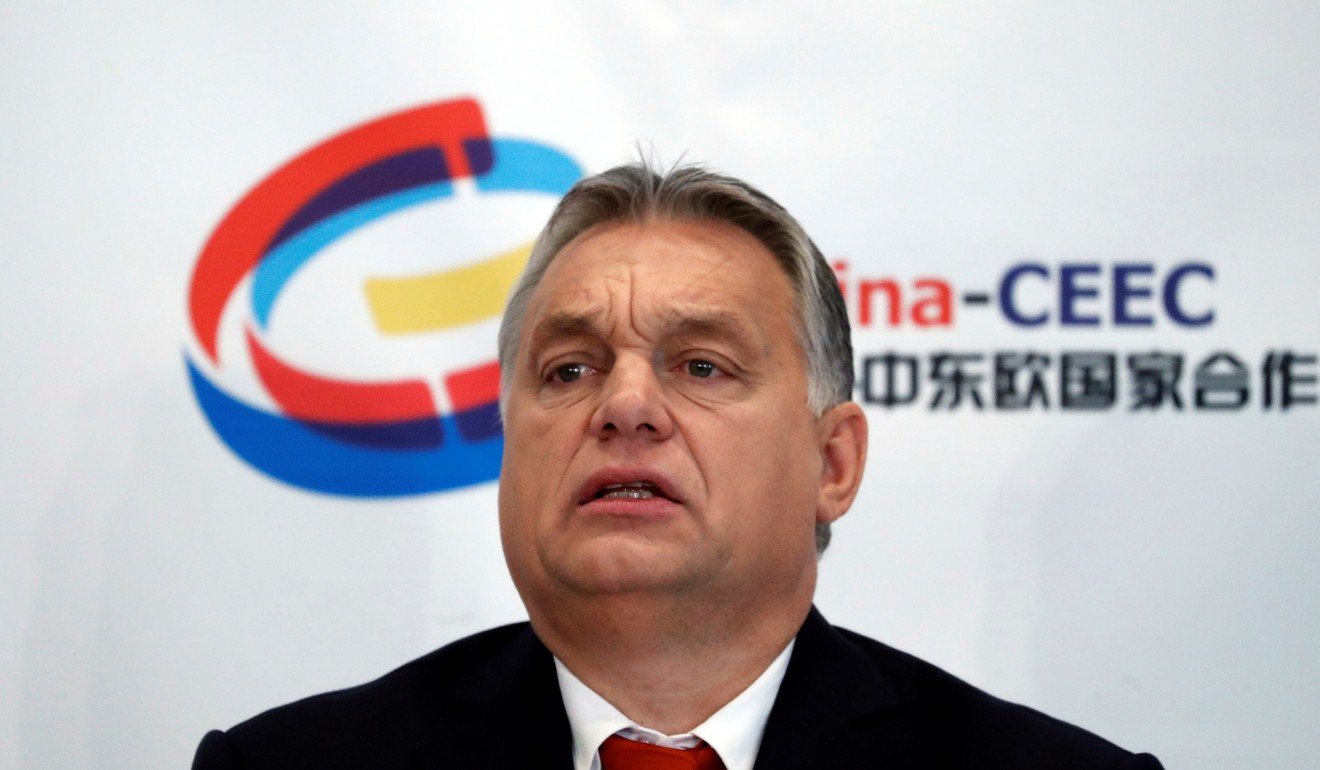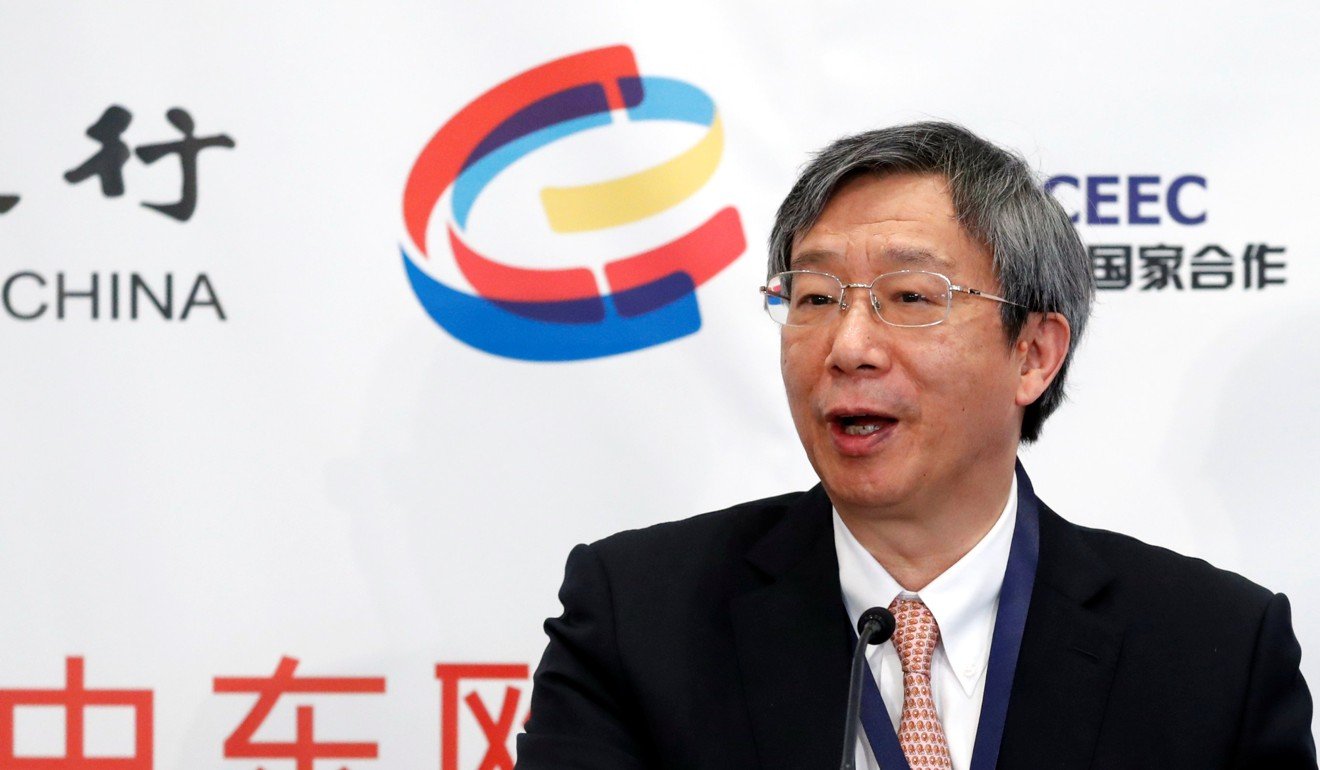
Central bank chiefs from China, eastern Europe discuss closer cooperation between ‘new power centres’
- People’s Bank of China boss Yi Gang attends first 16+1 China-CEEC Central Bank Governors’ Meeting in Budapest
- Nations have ‘in depth’ discussions on possible use of yuan as a foreign exchange reserve currency
Central bank chiefs from China and 16 eastern European countries discussed the development of closer economic ties and the possible future use of the yuan as a foreign exchange reserve currency on Friday at a new financial summit in Budapest.
According to a statement by the People’s Bank of China (PBOC), Yi Gang, its governor, conducted “in-depth” discussions with his European counterparts about Chinese and central European economic development, the role of yuan in foreign exchange reserves and central bank cooperation. It did not elaborate.
Is China about to let the yuan weaken below seven to the dollar?
Speaking at the opening ceremony of the 16+1 China-CEEC Central Bank Governors’ Meeting, Hungarian Prime Minister Viktor Orban said that “a new multilateral economic world order is emerging is emerging and China is the first of the new power centres”, according to a statement on the Hungarian government’s website.
The second power centre comprised central and eastern European countries, he said.

Beijing has been keen to boost its presence in the European Union’s backyard by developing greater trade and investment links with the region, a move that has raised eyebrows from Berlin to Brussels.
Orban said also that China would be a major player for a long time to come and that its currency, the yuan, “had to be reckoned with”. Countries should prepare for a future world when the “[US] dollar has lost its monopoly”, he was quoted as saying.
China’s forex reserves hit 18-month low as trade war piles pressure on yuan
In July 2017, Hungry issued 1 billion yuan (US$143.9 million) worth of yuan-denominated government bonds, also known as panda bonds, and Orban said it planned to issue more in the future.
The United States, he said, was seeking to transform trade relations to “preserve its dominant position”, but Hungary must help to ensure that China, Germany and the US all have “an equal interest” in making the region successful.
In a separate report by Reuters, Orban was quoted as saying that Hungary would be “cautious” about adopting the euro.

Meanwhile, Xinhua reported that Orban, who attended the China International Import Expo in Shanghai last week, praised Beijing’s stance of “defending the idea of multilateralism and the opening of markets”.
Xi Jinping makes fresh promises to open China’s economy and boost imports
The warm ties between Beijing and Budapest were in marked contrast to Brussels’ criticism of the far-right political leader. Donald Tusk, the president of the European Council, last week accused Orban – without actually naming him – of tolerating xenophobia and nationalism while undermining liberal democracy, according to a report by British newspaper The Independent.
Xinhua quoted Yi as saying that “the next step” for China and the 16 central and eastern European countries was “the deepening of financial cooperation”, after China’s trade with the region hit US$68 billion last year.
US, EU and China vie for influence in Eastern Europe
The central banks of Hungary, Lithuania and Poland are already institutional investors in China’s interbank bond market and in 2016 the PBOC renewed a 10 billion yuan bilateral currency swap deal with Hungary. Also that year, Poland issued 3 billion yuan worth of panda bonds.
The 16 European countries involved in the conference were: Albania, Bosnia and Herzegovina, Bulgaria, Croatia, Czech Republic, Estonia, Hungary, Latvia, Lithuania, Macedonia, Montenegro, Poland, Romania, Serbia, Slovakia, Slovenia.

